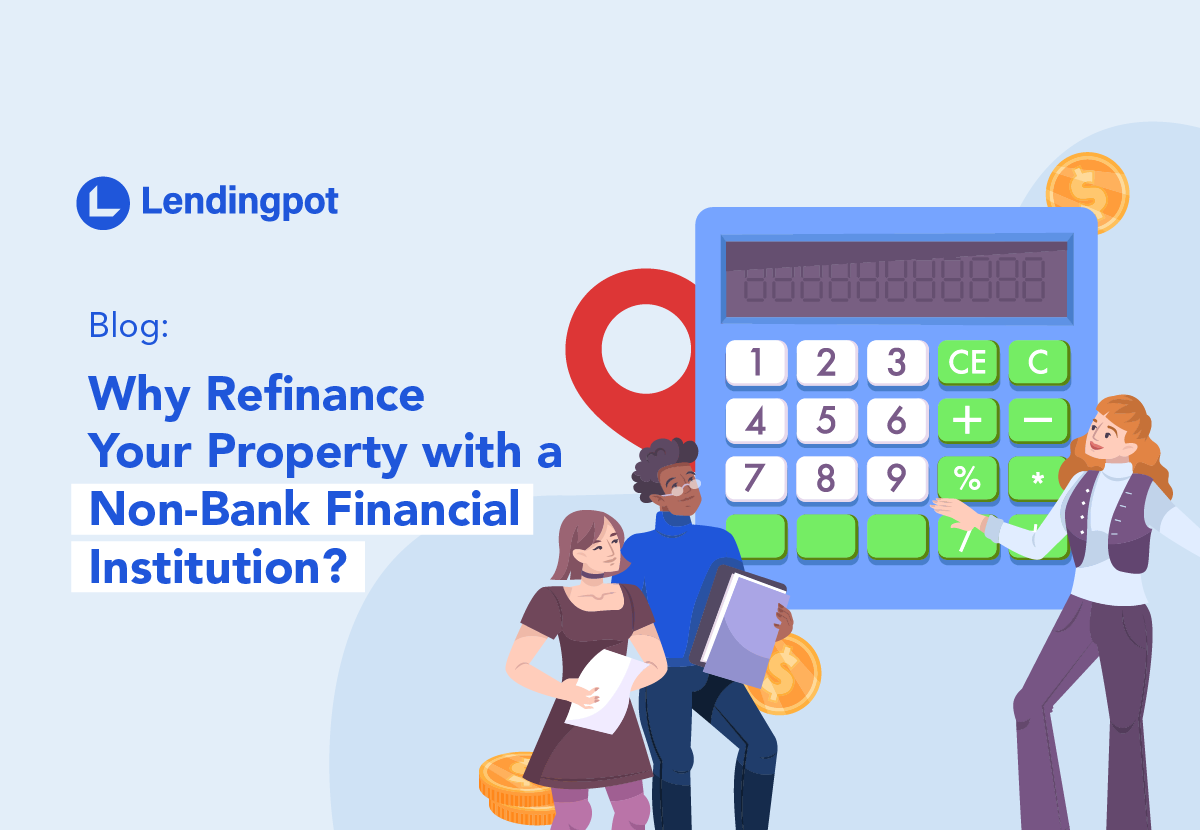
Refinancing has many benefits for property owners, including better interest rates, more affordable monthly repayments, better tenors—just to name a few. In some cases, you can also turn part of what you own, whether it’s a house or commercial property, into usable funds (equity value).
Most turn to banks to refinance their property. Which is all well and good. I mean, why refinance your property with a non-bank financial institution at higher interest when there are plenty of traditional banks to choose from—at least, goes the common refrain. However, there are good reasons people still refinance with non-banks and we are here to name a few.
Non-bank lenders can offer exemptions from stringent regulatory requirements such as Total Debt Servicing Ratio (TDSR), age limits, min credit history or even minimum operating history for newly established companies. This makes refinancing accessible to a wider group of property owners and business owners who may otherwise be excluded by traditional banks. For entrepreneurs, younger borrowers, or companies without long track records, this flexibility can mean the difference between being stuck with limited options and being able to tap into meaningful financing that supports growth and stability. While interest costs with non-bank lenders may be higher, these relaxed requirements are designed to compensate by giving borrowers access to funding that would otherwise be unavailable, making it a practical trade-off for those who value liquidity and flexibility.
Read More: Banks vs Moneylenders in SME Business Financing
Refinancing your property with a non-bank financial institution allows you to access higher gearing compared to traditional banks. While banks typically cap refinancing at around 75% of the property’s value, non-bank lenders can go up to 85%. This gives property owners the ability to unlock more liquidity from their assets, which can be reinvested into business growth, debt consolidation, or other investment opportunities. For businesses and individuals looking to maximize the value of their property, this higher loan-to-value ratio provides an immediate advantage.
Another benefit is the flexibility of terms offered by non-bank financial institutions. Unlike banks, which are often restricted by rigid guidelines, non-bank lenders can structure repayments more creatively. Options such as interest-servicing-only arrangements are available, helping borrowers better manage cash flow. Furthermore, banks typically impose tenor restrictions—for instance, commercial property refinancing limited to 10–15 years, or residential refinancing tied to the remaining tenor of the existing loan. Non-bank institutions, on the other hand, can provide more customized solutions that align with the borrower’s financial goals and circumstances.
Read More: Who Has Better SME Loan Interest Rates, Private Lenders or Moneylenders?
Refinancing with a non-bank lender does come at a higher cost, making it more suitable for short-term or bridging needs rather than long-term financing. Interest rates typically range from 6% to 7.5% p.a. (as of 20 August 2025), compared to around 2% p.a. from banks. In addition, borrowers should factor in legal and valuation fees, which can amount to $4,000–$7,000. While the flexibility and higher gearing offered by non-banks can be highly valuable, it is important to assess your requirements carefully and weigh these benefits against the higher costs before proceeding.
Banks aren’t the only option to refinance your property, in fact, in some situations, it may be worth it to consider refinancing your property with a non-bank institution.
Need some help? Register today to access our network of lending partners, which in addition to banks, includes non-bank institutions. 5 minutes and your Singpass business profile is all you need. If you need assistance, reach out to our team. We’ll be happy to answer any questions you may have.


Lina heads up all things marketing and branding at Lendingpot. With a keen aesthetic eye, she believes in the use of design to communicate with our SME community and aspires to turn Lendingpot into a household name. Out of work, she is an avid camper and appreciator of nature’s best works.